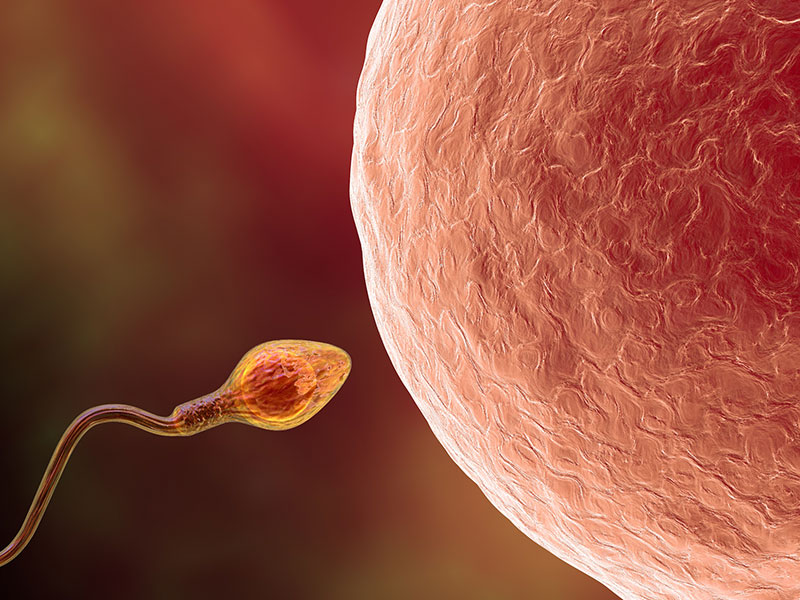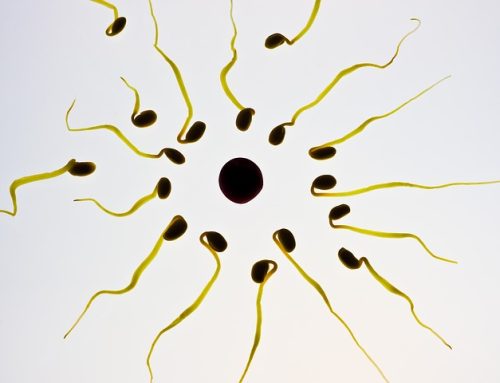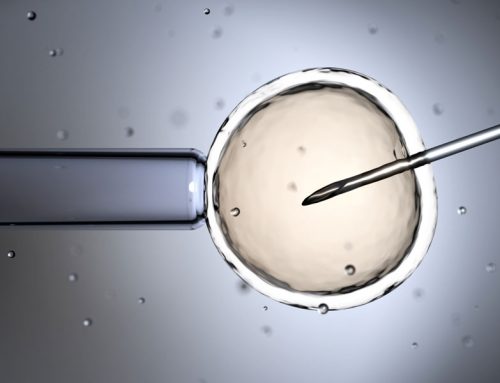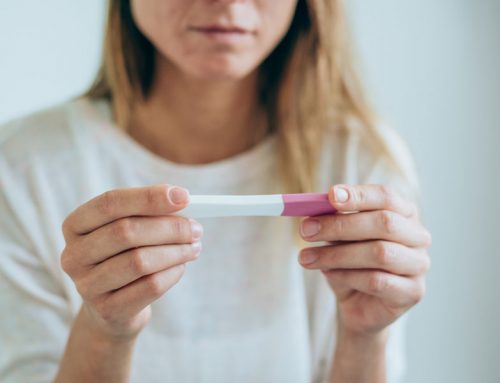Oocytes. The ovaries contain female reproductive cells, which are called oocytes. The non-medical term for the oocyte is “egg.” When oocytes mature, they are capable of being fertilized, which results in a pregnancy. The female egg is also called an ovum (plural ova), comes from the oocyte. Supplementation with Coenzyme Q10 may improve human oocyte quality and female fertility [Rodríguez-Varela & Labarta 2021].
 To mature successfully when they are released from the follicles and to transition into a developing embryo, oocytes have certain requirements:
To mature successfully when they are released from the follicles and to transition into a developing embryo, oocytes have certain requirements:
- optimal mitochondrial function
- sufficient synthesis of ATP energy
- protection from oxidative damage caused by harmful free radicals
Coenzyme Q10 Important for Successful Pregnancy
Coenzyme Q10 is required for the generation of mitochondrial energy in the form of ATP, and it is also the primary mitochondrial antioxidant. Consequently, coenzyme Q10 protects and enhances human oocyte quality and subsequent female fertility. Fertility treatments can utilize coenzyme Q10 in two different ways:
- women who are trying to become pregnant can take CoQ10 supplements orally
- Coenzyme Q10 can be added to culture media for in-vitro fertilization protocols
Review of CoQ10 Therapy and Oocyte Quality
A 2021 review of the relevant research literature indicates that oral CoQ10 supplementation may benefit women with the following conditions:
- low ovarian reserve
- poor response to ovarian stimulation
- advanced age
- polycystic ovary syndrome (PCOS)
Each of these conditions results in the production of fewer oocytes and a decline in the ability of oocytes to mature [Rodríguez-Varela & Labarta 2021].
Researchers have also produced promising results by increasing CoQ10 levels in follicular fluid. At this point, coenzyme Q10-associated improvement of oocyte quality has been achieved mostly in younger poor responders, i.e., women younger than 35 years of age.
Researchers speculate that CoQ10 levels may be too low in older women to be rescued by CoQ10 therapy or women over the age of 35 years may need higher CoQ10 doses or different methods of administration. The optimal timing, dosage, and duration of the CoQ10 therapy are clearly important. [Rodríguez-Varela & Labarta 2021]
CoQ10 Therapy for Women Over 35 Years of Age
A 2018 study reported that daily oral supplementation with coenzyme Q10 for 30-35 days improved oxidative metabolism in the follicular fluid, which may improve oocyte quality in infertile women over the age of 35 years [Giannubilo 2018].
In this study, the researchers divided the female partner (ages 31-46) of infertile couples who were undergoing IVF procedures into the following two groups:
- women taking 200 mg of Coenzyme Q10 daily
- unsupplemented women acting as placebo controls
The researchers found the following significant differences between the supplemented and the unsupplemented groups:
- increased levels of Coenzyme Q10 in the follicular fluid in the CoQ10 supplemented group
- improvements in the oxidative status in the CoQ10 supplemented group
- higher levels of Coenzyme Q10 in follicles containing recovered mature oocytes compared to follicles lacking recovered oocytes
- higher percentages of successfully fertilized mature oocytes in the CoQ10 supplemented group
- larger number of embryos graded as Class I in the CoQ10 supplemented group
Conclusion: Coenzyme Q10 May Improve Oocyte Quality
CoQ10 therapy is a safe and well-tolerated therapy for improving oocyte quality.
CoQ10 therapy may treat infertility by improving mitochondrial function, promoting ATP energy synthesis, and by increasing antioxidant protection in follicular fluid and to oocytes [Rodríguez-Varela & Labarta 2021].
Both oral CoQ10 supplementation and CoQ10 addition to culture media seem to benefit immature oocytes.
Further studies are needed on the effect of CoQ10 therapy on mitochondrial function and antioxidant protection as part of infertility therapy.
Sources
Giannubilo SR, Orlando P, Silvestri S, et al. CoQ10 Supplementation in Patients Undergoing IVF-ET: The Relationship with Follicular Fluid Content and Oocyte Maturity. Antioxidants (Basel). 2018;7(10):141.
Rodríguez-Varela C, Labarta E. Does Coenzyme Q10 supplementation improve human oocyte quality? Int J Mol Sci. 2021 Sep 2;22(17):9541.
Rodríguez-Varela C., Labarta E. Clinical application of antioxidants to improve human oocyte mitochondrial function: A review. Antioxidants. 2020;9:1197.
The information provided in this review article is not intended as medical advice and should not be used as such.
20 June 2022









Leave A Comment